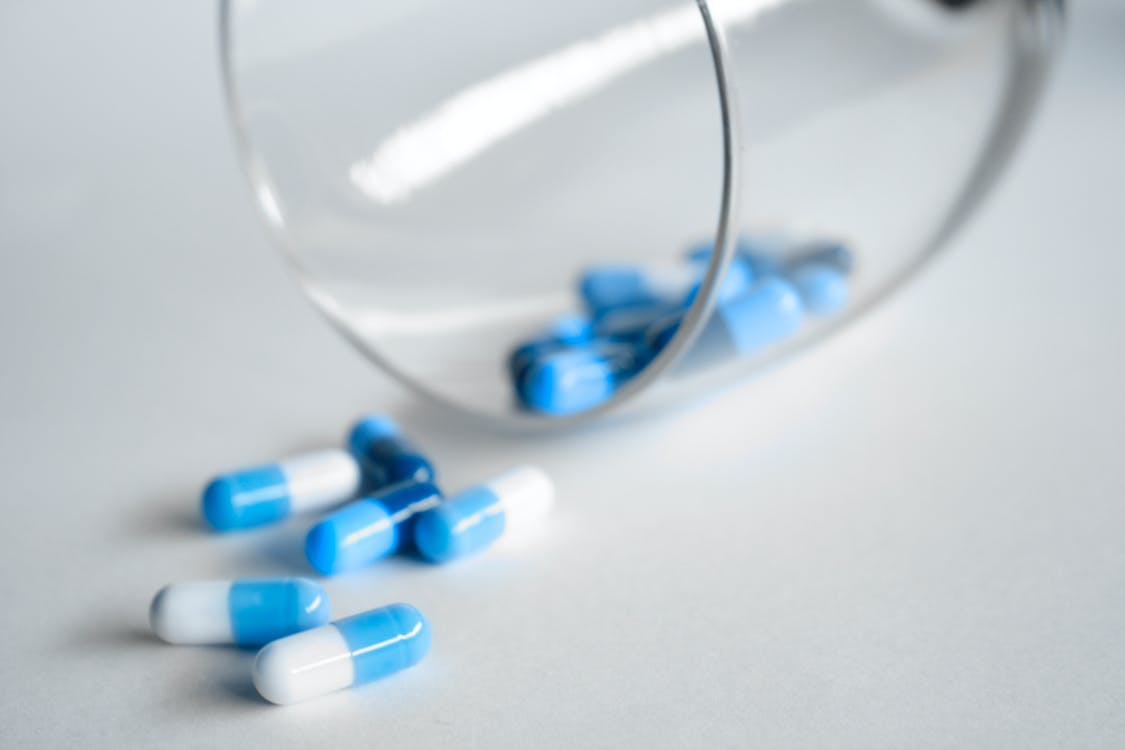
Getting sick is an unfortunate part of life. While many illnesses can be treated with prescription medications like antibiotics, it's essential to understand the risks of taking antibiotics without a doctor's approval. It may seem convenient, especially when you feel unwell, but this decision can have serious health consequences. Here are the potential dangers of taking antibiotics without a prescription:
Adverse Reactions
The possibility of experiencing an adverse reaction is among the most serious risks of taking antibiotics without a prescription. These reactions can occasionally pose a hazard to life. An undesirable reaction occurs when your body responds negatively to a substance or therapy.
Consider the scenario where you treat a skin illness with any antibiotic you can get from a pharmacy. You might not be aware of any potential allergy reactions in that circumstance that could be dangerous. Hives, facial, lip, and tongue swelling, trouble breathing or swallowing, wheezing, chest tightness, and irregular heartbeats are a few possible symptoms.
With tests and other checkups from your doctor, they’ll know if you have a bacterial infection. From there, they might prescribe you antibiotics like Metronidazole or Doxycycline based on your diagnosis and symptoms. They might even tell you tips on how to save money on antibiotics, like getting BuzzRx Deals on Metronidazole and other medications you might need.
Development of Superbugs
Taking antibiotics without a prescription also carries the risk of creating superbugs, which are bacteria that can develop drug resistance. Antibiotic resistance can develop in some bacteria when used incorrectly or too frequently. This means the antibiotic won't kill them and will continue to spread or cause an infection.
In some cases, bacteria can even exchange genetic material with other bacteria and become more 'super' in the process. This makes them much harder to treat with drugs. These superbugs may also spread from person to person, resulting in an epidemic of antibiotic resistance that may be difficult to contain.
Delay in Proper Treatment
Without a prescription, using antibiotics runs the risk of delaying critical medical treatment. This is due to the potential that the medication may not be successful in treating your specific illness, causing your symptoms to persist and raising your chance of experiencing more serious issues.
A thorough diagnostic must be performed before using any medication. This is done so that diverse illnesses can be treated differently and because taking the wrong medication could worsen your condition. For instance, taking medicines for a virus-caused infection won't help as they only treat bacteria.
Drug Overdose
The collection of bacteria living inside your body, known as your microbiome, may be impacted by antibiotics used without a prescription. You need these bacteria to keep your body healthy. Disorders like melancholy or anxiety, as well as skin issues, digestive issues, and even skin issues, may occur from their disturbance.
Using antibiotics without a doctor's prescription increases the chance of disturbing the delicate balance of healthy and harmful bacteria in your body. Antibiotic use as prescribed and when necessary is a great way to protect your microbiota.
Organ Damage
Taking antibiotics without a prescription increases the risk of organ damage in addition to the hazards of overdose. Antibiotics are potent drugs that, although the majority of people believe them to be harmless, can have long-term detrimental effects if misused. For instance, overusing or repeatedly taking some antibiotics might cause injury to the kidneys or liver.
If you use antibiotics without a prescription, you run the danger of unintentionally poisoning your organs. This is particularly true if the drug doesn't fit your condition or interacts with other drugs.
Nutritional Deficiency
Unprescribed antibiotic use can potentially result in nutritional deficits. Antibiotics kill many healthy bacteria in your gut besides the bacteria that cause an infection. By causing vitamin malabsorption and digestive problems, this disturbance in your gut microbiota might lead to nutrient shortages.
The capacity of your body to fight against illnesses can be impacted when you don't consume enough of some nutrients. Additionally, if your gut's helpful bacteria are absent, you can be more prone to recurring diseases and infections.
Damaged Microbiome
Antibiotics taken without a prescription can potentially affect your microbiome, the natural and safe collection of bacteria that live inside your body. You need these bacteria to keep your body healthy. Disorders like melancholy or anxiety, as well as skin issues, digestive issues, and even skin issues, may occur from their disturbance.
Using antibiotics without a doctor's prescription increases the chance of disturbing the delicate balance of healthy and harmful bacteria in your body. Antibiotic use as prescribed and when necessary is a great way to protect your microbiota.
Final Thoughts
When using antibiotics, it's essential to use caution, just like with any other prescription. Although these drugs include a number of possible hazards, they can be lifesavers for serious conditions. Before taking any drug, always ask your doctor's okay to ensure your safety and well-being. This lowers your risk of experiencing adverse side effects and guarantees you receive the best care possible for your illness.